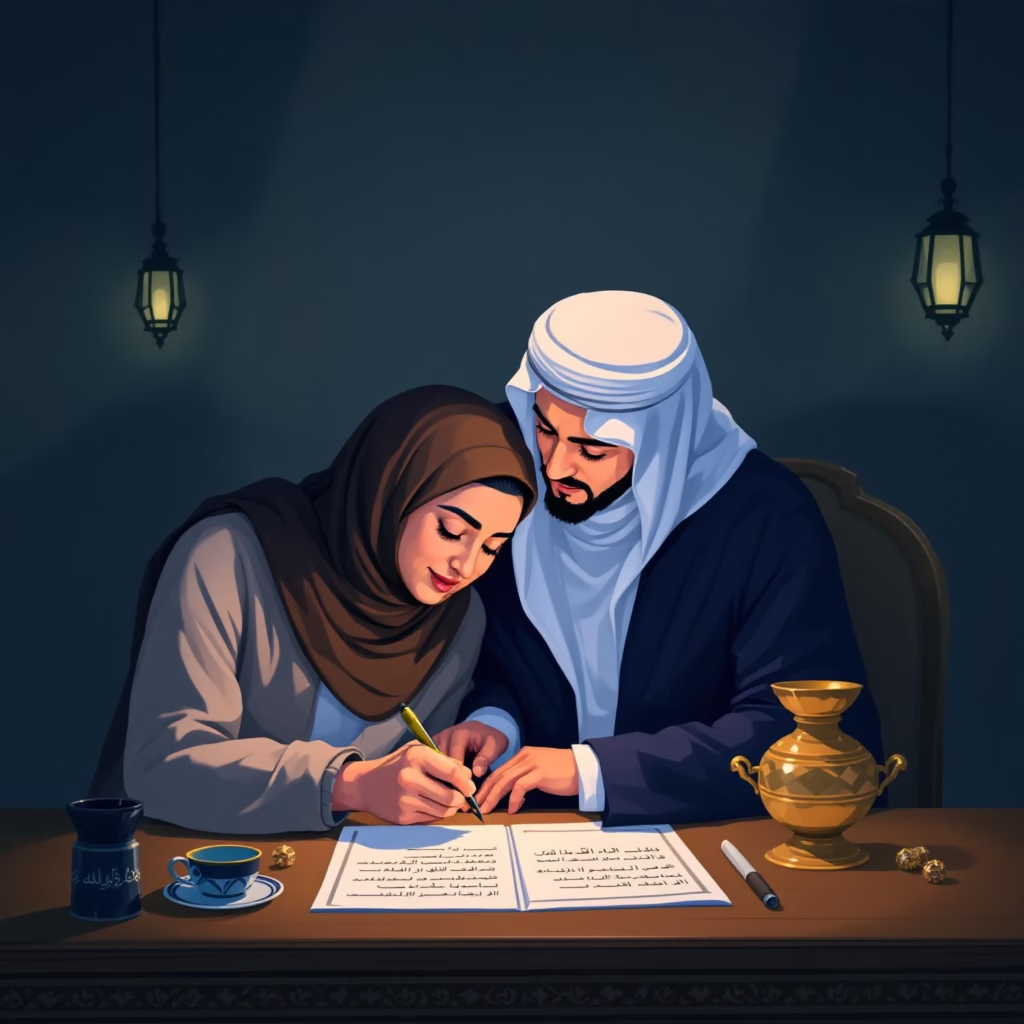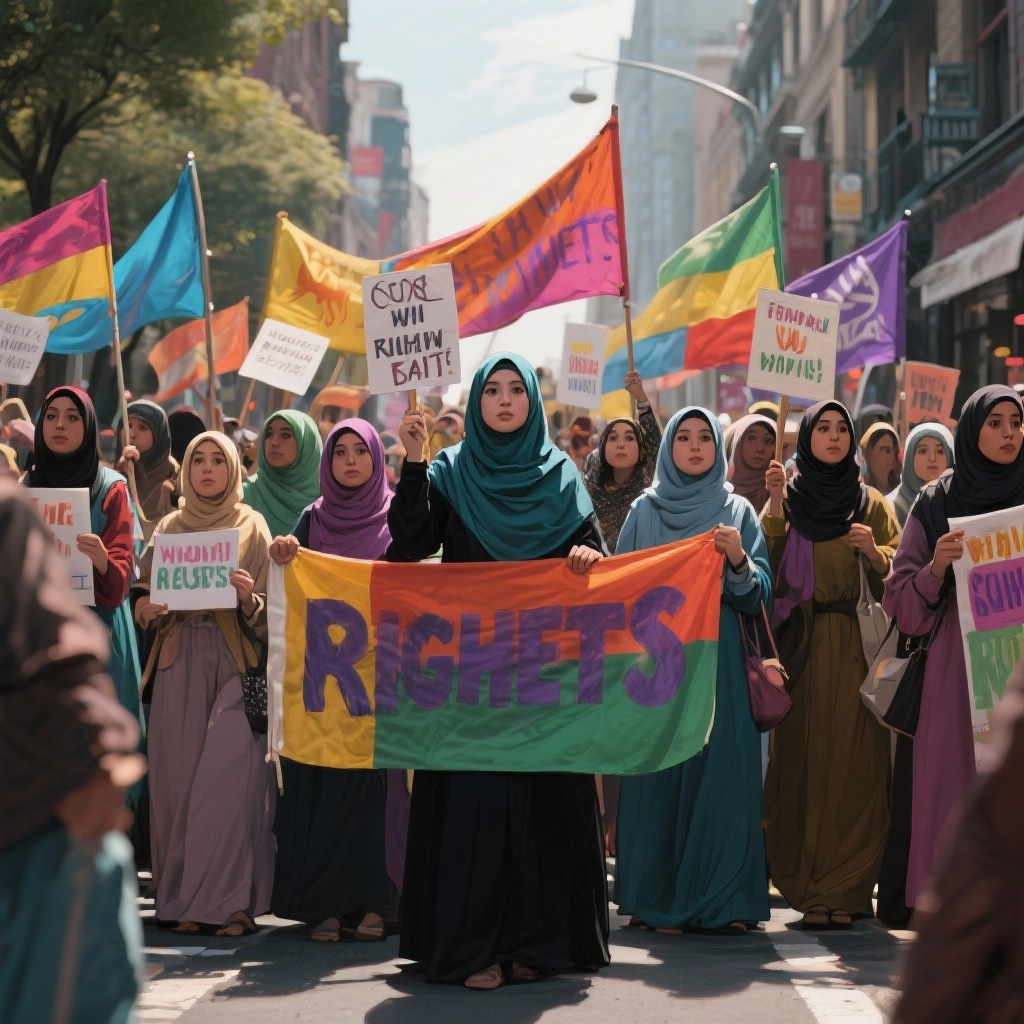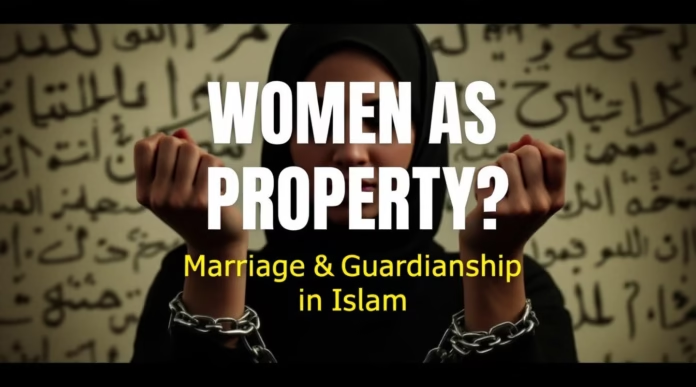Introduction
Many Muslims are told that Islam gave women rights when they had none. You may have heard scholars and imams say, “Islam honored women and freed them from oppression.” But when you open the Quran, Hadith, and Islamic law books, you will see a very different reality.
Islam was born in the 7th century, a time when women were seen as property across much of the world. Instead of completely changing this mindset, Islam built a legal system that kept women under the authority of men. These rules are still followed in many Muslim countries today.
This blog will explain:
- How guardianship (wali) keeps women under male control.
- How Islamic marriage is a legal contract that treats women as dependents.
- The laws on divorce, inheritance, and testimony that make women unequal.
- How these rules clash with modern laws like those in the UK.
By the end, you’ll see that Islamic law does not treat women as full, independent human beings but as dependents or even property.
Guardianship in Islam
What is Guardianship?
In Islam, a woman is expected to have a male guardian, known as a wali, throughout her life. The guardian is usually her father, brother, uncle, or another male relative. This wali makes key decisions for her, especially about marriage.
This is not a cultural tradition—it’s in Islamic scripture:
- Quran 4:34 – “Men are in charge of women, because Allah has given some of them more than others, and because they spend of their wealth to support them.”
This system places men as “protectors” over women, but in reality, it limits their independence. Even an adult woman is treated like a child in need of supervision.
Real-Life Examples of Guardianship
- Saudi Arabia: Women couldn’t travel abroad, rent homes, or even leave prison without a male guardian’s permission until reforms in 2019. Even now, social pressure keeps these rules alive.
- Iran: Women still need their father’s or husband’s permission to get a passport or travel.
- Afghanistan: The Taliban has reinstated strict guardianship laws, banning women from universities and jobs.
This isn’t just a cultural practice; it’s Islamic law being followed exactly as it was written.
Marriage as a Contract of Ownership

The Role of Dowry (Mahr)
In Islamic marriage, the man must pay a mahr to his bride. On the surface, this looks like a gift, but in historical context, it was a form of payment. The man pays, and in return, gains legal rights over his wife.
- Quran 4:4 – “Give women their bridal gifts graciously.”
In many Islamic societies, mahr has been treated like a transaction. Some historians even describe it as a purchase price.
Consent is Controlled
While Islamic law says a woman should consent to marriage, Hadith show her guardian’s permission is more important:
- Sunan Abu Dawood 2085 – “A woman without a guardian’s consent cannot marry.”
This means that a father or male guardian can arrange a marriage even if the woman disagrees.
Women’s Rights in Divorce
Islam allows men to end marriages far more easily than women:
- A man can divorce his wife by saying “talaq” (I divorce you) three times.
- A woman can only seek divorce under specific conditions, like abuse, and needs a judge’s permission.
- Quran 2:229 – “Divorce is twice; then, either keep [her] in an acceptable manner or release [her] with good treatment.”
This system traps women in unwanted marriages while giving men nearly absolute freedom to leave whenever they choose.
Inheritance Laws
In Islamic inheritance law, a daughter gets half the share of her brother.
- Quran 4:11 – “For the male, what is equal to the share of two females.”
This is often justified by saying that men have financial responsibilities, but the result is clear: women receive less wealth.
Testimony in Court
In Islamic courts, one man’s testimony is equal to two women’s testimonies:
- Quran 2:282 – “Call two male witnesses… If two men are not available, then one man and two women, so that if one forgets the other can remind her.”
This verse shows that women were considered less reliable than men.
The Historical Context
Before Islam, women in Arabia were often treated as property. Girls could be sold into marriage, inherited like objects, or even buried alive. Islam introduced some rules to stop the worst abuses but did not change the mindset that men are superior.
Instead of saying “men and women are equal,” Islam reinforced male control with a religious justification.
Modern-Day Impacts

Even today, many Muslim-majority countries base their laws on these teachings:
- Saudi Arabia is changing the rules for women but still have got strict rule under 21 year old women
- Iran limits women’s rights in travel, dress, and custody of children.
- Afghanistan under the Taliban has banned girls from education. over 2.2 million women are banned from getting education
Recently there are a lot of incident in which family killed their women because of the marriage choice and also killed their daughter because she posted video of Tik Tok .
These examples show that the Quran and Hadith are not just “historical.” They shape laws and lives today.
Comparison to Modern UK Law
In the UK, marriage is a partnership of equals. Both men and women have the same rights in:
- Marriage contracts
- Divorce proceedings
- Child custody
- Property and inheritance
There is no concept of guardianship because women are recognized as full legal adults.
Why This Matters
Some Muslims argue that these laws “protected” women for their time. But if a religion is truly from God, shouldn’t it promote equality at all times, not just make slight improvements for the 7th century?
These rules clearly show a patriarchal mindset rather than divine wisdom.
Conclusion
Islam claims to have “honored” women, but the Quran and Hadith clearly show that women were placed under male control. Guardianship, unequal inheritance, one-sided divorce, and reduced legal testimony all prove that women were not treated as equals.
Even in modern times, these teachings continue to harm women in Muslim-majority countries. Religion should not be above reason. True justice means equality, not religious excuses for inequality.
If Islam truly came from God, would it treat women like property?

